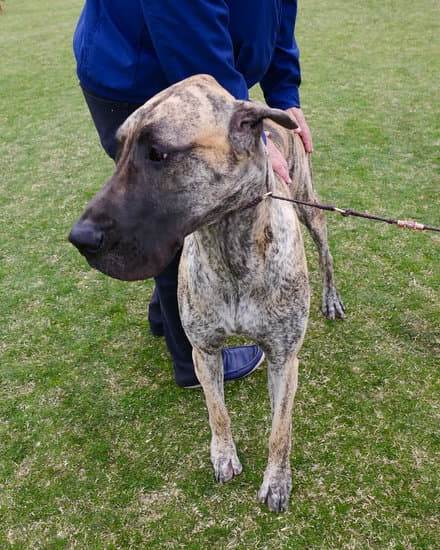Drug dogs play a vital role in law enforcement, using their keen sense of smell to detect illegal substances. But are drug dogs trained to smell THC or CBD? This question has recently gained attention due to the changing landscape of cannabis laws and regulations. Drug-detection dogs are trained extensively to identify various drugs, including marijuana compounds like THC and CBD.
These specially trained canines undergo rigorous training processes that involve exposure to different scents and rewards for successful identifications. However, the ability of drug dogs to differentiate between THC and CBD has raised concerns among cannabis users and advocates, particularly in states where CBD is legal but THC remains prohibited. Understanding how drug dogs detect scents can provide insight into their capabilities when it comes to detecting specific compounds like THC and CBD.
The legal implications of drug dogs alerting to THC or CBD during searches also present a complex issue that requires careful consideration. As laws regarding cannabis continue to evolve, the role of drug-detection dogs in identifying marijuana-related substances becomes increasingly debated. Despite their effectiveness in detecting drugs, some argue that alternative methods may be more appropriate for distinguishing between THC and CBD in today’s society.
The Training Process for Drug-Detection Dogs
Training Drug-Detection Dogs to Smell THC and CBD
Drug-detection dogs are highly trained animals that play a crucial role in law enforcement’s efforts to detect illegal substances. The training process for these dogs is rigorous and involves teaching them to identify specific scents associated with drugs like marijuana, cocaine, heroin, and methamphetamine.
When it comes to cannabis, the question arises: are drug dogs trained to smell THC or CBD? The answer is that most drug-detection dogs are trained to detect THC, the psychoactive compound found in marijuana that is responsible for its intoxicating effects.
Challenges in Training Dogs to Differentiate Between THC and CBD
While drug dogs can be trained to detect the distinct smell of THC, the issue of differentiating between THC and CBD poses a challenge. CBD, unlike THC, does not have psychoactive effects and is legal in many states. This complicates the training process for drug-detection dogs because they must be able to accurately distinguish between the two compounds.
Some experts argue that it may be difficult for dogs to reliably alert on CBD due to its lack of psychoactive properties. However, with proper training techniques and reinforcement, drug dogs can potentially learn to differentiate between these compounds.
Specialized Training Programs for Cannabis Detection
In response to the growing availability of cannabis products containing varying levels of THC and CBD, some law enforcement agencies have begun implementing specialized training programs for drug-detection dogs. These programs focus on teaching dogs how to discern between different forms of cannabis products, including those with higher concentrations of either THC or CBD.
By enhancing the capabilities of drug-detection dogs through targeted training initiatives, law enforcement agencies aim to improve accuracy in detecting illegal substances while minimizing false alerts on legal products containing CBD.
Can Drug Dogs Differentiate Between THC and CBD?
Drug dogs are trained to detect a variety of substances, including drugs like marijuana. However, the question remains: are drug dogs trained to smell THC or CBD specifically? The answer to this question lies in the way these dogs are trained and the scents they are exposed to during their training process.
When it comes to drug detection, drug dogs are typically trained using a reward-based system where they learn to associate certain scents with rewards. In the case of marijuana, drug-detection dogs are usually trained to detect THC, which is the psychoactive compound found in cannabis. This means that these dogs are specifically looking for the scent of THC when searching for drugs.
While both THC and CBD come from the cannabis plant, they have distinct chemical compositions and scents. Research has shown that drug dogs can indeed differentiate between THC and CBD based on their unique scent profiles. This ability allows them to accurately detect marijuana containing THC while potentially ignoring products containing only CBD.
| Training Focus | Detection Ability |
|---|---|
| THC | Drug dogs can detect THC accurately |
| CBD | Drug dogs can differentiate between THC and CBD scents |
How Do Drug Dogs Detect Scents?
Drug detection dogs are trained to sniff out a variety of substances, including illegal drugs like marijuana, cocaine, heroin, and methamphetamine. These highly skilled canines possess a sense of smell that is far superior to humans, making them invaluable in law enforcement efforts to detect and combat drug trafficking. But how exactly do drug dogs manage to detect scents with such precision?
Olfactory System
The olfactory system of drug dogs plays a crucial role in their ability to detect scents. Dogs have up to 300 million olfactory receptors in their noses, compared to about six million in humans. This complex system allows them to distinguish between different odors at incredibly low concentrations. When it comes to detecting THC or CBD, drug dogs are trained to respond when they pick up on the specific scent associated with these substances.
Training Techniques
Drug detection dogs undergo rigorous training processes to sharpen their scent-detection skills. During training sessions, handlers use positive reinforcement techniques to reward dogs when they correctly identify target odors such as marijuana.
By associating the smell of THC or CBD with a reward, drug dogs learn to signal when they detect these substances. However, it is important to note that these canines are typically trained to alert on any form of cannabis rather than specifically distinguishing between THC and CBD.
Limitations and Challenges
While drug detection dogs are highly effective in detecting a wide range of substances, including cannabis, there are limitations and challenges associated with their use. One key issue is the inability of drug dogs to differentiate between legal hemp-derived CBD products and illegal marijuana containing high levels of THC.
This lack of specificity can lead to false alerts and potential legal complications for individuals carrying legal CBD products. As laws surrounding cannabis continue to evolve, the role of drug-detection dogs in distinguishing between THC and CBD may become increasingly complex.
Legal Implications of Drug Dogs Alerting to THC or CBD
The legal implications of drug dogs alerting to THC or CBD can vary depending on the specific circumstances and location. In states where cannabis is still illegal, such as under federal law in the United States, a positive alert from a drug dog indicating the presence of THC can lead to legal consequences. This could result in potential charges for possession of a controlled substance, even if the individual believed they were in compliance with state laws regarding marijuana use.
On the other hand, in states where cannabis has been legalized either for medical or recreational use, a positive alert from a drug dog indicating CBD might not carry the same legal weight. CBD, derived from hemp plants containing less than 0.3% THC, is often distinguishable from marijuana by drug dogs trained to detect specific compounds. Law enforcement agencies may need to adapt their protocols and procedures when it comes to handling cases involving CBD alerts from drug dogs.
It is crucial for law enforcement officials and legal authorities to consider the nuances between THC and CBD detection by drug dogs when determining appropriate actions. The evolving landscape of cannabis legalization calls for clear guidelines and procedures to ensure that individuals are not wrongfully penalized based on outdated perceptions or lack of understanding regarding these substances.
As more research is conducted on the capabilities of drug dogs in detecting THC or CBD, there may be further developments in how these alerts are interpreted within the legal system.
| Drug Dogs | THC | CBD |
|---|---|---|
| Trained to Detect | Yes | Possibly |
| Legal Implications | Potential Charges | Varying Consequences |
The Debate Surrounding Drug-Detection Dogs in Relation to Cannabis
Drug-detection dogs have long been utilized as a tool by law enforcement agencies to detect illegal substances such as marijuana. However, with the changing legal landscape surrounding cannabis, there has been a debate on whether drug dogs should be trained to specifically detect THC or CBD.
THC is the psychoactive component of marijuana that produces a “high,” while CBD is non-psychoactive and often used for medicinal purposes. This debate raises questions about the effectiveness of drug-detection dogs in accurately detecting different components of cannabis.
To delve into this debate, it is important to understand that drug dogs are typically trained to detect a specific odor associated with a particular substance. When it comes to marijuana, drug dogs are primarily trained to identify the scent of THC, as it is the main psychoactive compound in cannabis. However, some argue that in states where CBD is legal and more prevalent, drug dogs should also be trained to differentiate between THC and CBD scents.
In terms of practicality, training drug dogs specifically to detect CBD may pose challenges due to the similarity in scent between THC and CBD. Additionally, there is a lack of consensus on the reliability of drug-detection dogs in accurately distinguishing between various substances within the same plant. As such, it remains a contentious issue among law enforcement agencies and advocates for both recreational and medicinal cannabis use regarding whether drug dogs should be trained to smell THC or CBD.
Alternatives to Using Drug-Detection Dogs for Cannabis Detection
Drug dogs have long been relied upon by law enforcement agencies to detect illegal substances such as narcotics, including marijuana which contains THC. However, with the increasing legalization of cannabis for medical and recreational use in many states, there has been a growing concern about the accuracy and reliability of drug dogs in differentiating between THC and CBD, especially since CBD is non-intoxicating and legal in many jurisdictions.
While drug dogs are trained to detect specific scents, their ability to differentiate between THC and CBD can be challenging. This is because both cannabinoids come from the same plant and share similar chemical properties. Despite this challenge, many drug-detection dogs are still trained to alert to any form of cannabis due to the difficulty of distinguishing between THC-dominant strains and those with higher levels of CBD.
As the debate over the legalization of cannabis continues, there is a need to explore alternative methods for detecting THC specifically without penalizing individuals who may be using legal products containing CBD. Some alternatives to using drug-detection dogs for cannabis detection include:
- Utilizing technology such as portable mass spectrometers or chemical sensors that can identify specific compounds within a sample
- Implementing roadside saliva tests that can detect recent cannabis use based on THC levels in saliva
- Training law enforcement officers to visually identify different strains of cannabis based on physical characteristics
Conclusion
In conclusion, drug-detection dogs play a crucial role in law enforcement agencies worldwide, especially when it comes to detecting illegal substances like THC. The training process for these dogs is rigorous and tailored to enhance their olfactory capabilities to differentiate between various scents.
However, the question remains: are drug dogs trained to smell THC or CBD? While these animals are primarily trained to detect THC due to its psychoactive effects and legal status as a controlled substance, their ability to distinguish between THC and CBD is still a subject of debate.
With the increasing legalization of cannabis and the widespread use of CBD products, there is a growing need for clarity on whether drug dogs can accurately detect these substances separately. It is essential for law enforcement agencies to adapt their training protocols and techniques to ensure that drug-detection dogs are equipped to differentiate between THC and CBD in order to avoid false alerts and unnecessary legal implications.
Additionally, as the legal landscape regarding cannabis continues to evolve, the role of drug-detection dogs may need reevaluation in detecting these specific substances.
Moving forward, advancements in technology such as electronic scent detection devices may provide more accurate and efficient alternatives to using drug-detection dogs for cannabis detection. These devices can potentially offer greater precision in identifying specific scents like THC or CBD without relying solely on canine detection. Ultimately, as laws surrounding cannabis change, it is imperative for law enforcement agencies to adapt their methods of detection accordingly while ensuring that the accuracy and reliability are not compromised.
Frequently Asked Questions
Can a Dog Smell the Difference Between CBD and THC?
Dogs can indeed smell the difference between CBD and THC. Each compound has a distinct odor that dogs are trained to detect. While both compounds come from the cannabis plant, they have different chemical structures that allow dogs to differentiate them.
How Are Drug Dogs Trained to Smell?
Drug dogs are trained through a process called imprinting, where they associate certain scents with rewards like food or playtime. They are then exposed to various drugs like marijuana, cocaine, and heroin during training to recognize the specific odors associated with each substance. Through positive reinforcement, drug dogs learn to alert their handlers when they detect these scents.
Does CBD Counter THC in Dogs?
CBD does not necessarily counter the effects of THC in dogs. While some research suggests that CBD may help mitigate some of the negative side effects of THC in humans, it is essential to remember that dogs metabolize these compounds differently.
It’s crucial for pet owners to consult with a veterinarian before giving their dogs any products containing THC or CBD to ensure their safety and well-being is prioritized.

Welcome to the blog! I am a professional dog trainer and have been working with dogs for many years. In this blog, I will be discussing various topics related to dog training, including tips, tricks, and advice. I hope you find this information helpful and informative. Thanks for reading!





